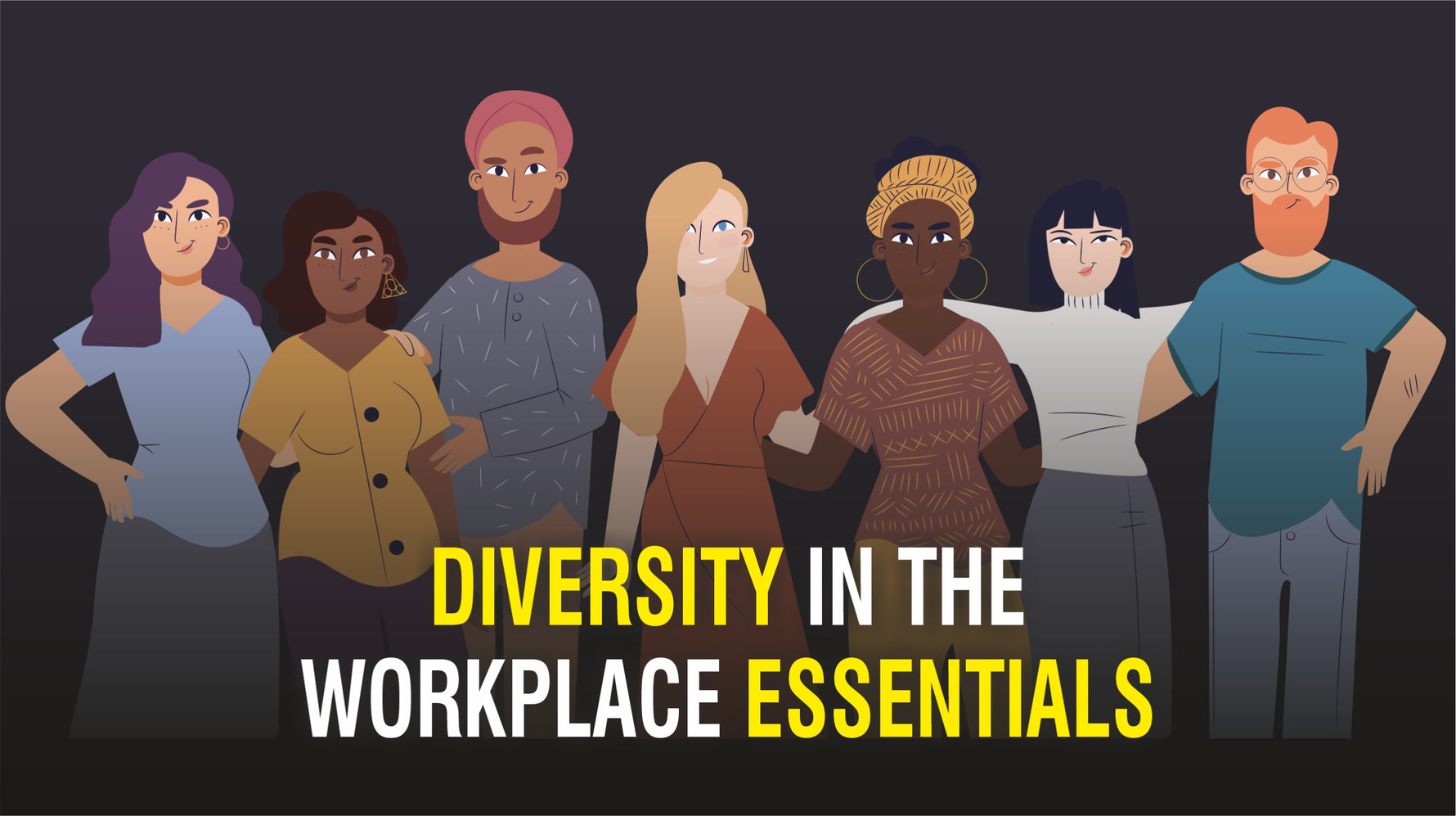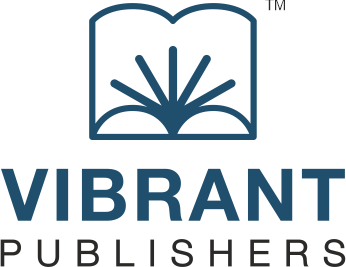Blogs on HR, Diversity, and Organizational Success

The Strategic Importance of DEI in the 21st Century
by Vibrant Publishers on Oct 04 2024
After the COVID-19 pandemic, social and globalization strategies have become important in strategic planning for organizations. DEI (Diversity, Equity, and Inclusion) initiatives have become key elements in addressing internal and external policies, processes, and procedures for senior executives. Organizations have begun using data analytics to summarize the effects that DEI programs and partnerships have on their overall financial outcomes and workforce revitalization. In this blog, we will dive into the strategic importance of DEI initiatives for organizations in the 21st century.
3 ways of incorporating DEI initiatives in organizations
DEI in the Spotlight: A Social Imperative
DEI gained attention during the COVID-19 pandemic, as civil rights violations became more apparent across various sectors of society. Many institutions such as higher education entities and civic organizations were highlighted in the news for systemic inequities. These incidents sparked conversations and calls for action on a much broader scale. Some examples most of us might relate to are:
● The constant civil rights violations experienced by African Americans underscored the urgent need for changes in laws to ensure equity and inclusion for all. Law enforcement agencies gained significant attention during the COVID-19 pandemic, highlighting the importance of corporate social responsibility (CSR) and diversity, equity, and inclusion (DEI) policies.
● School systems began to experience the stigma associated with the "No Child Left Behind" concept, particularly during the pandemic. Many minority students, lacking access to the internet, were unable to receive instructional tutoring or attend classes alongside their peers. In response, several educational systems partnered with internet providers to offer affordable WiFi access and provided temporary laptops to ensure students could participate in their education remotely. These efforts aimed to bridge the digital divide and support equitable learning opportunities for all students.
These social changes during the pandemic also pushed corporates to rethink their DEI policies. The next section of the blog dives into some notable examples of DEI initiatives taken by large organizations and their impact.
Corporate Investments in DEI
Fortune 500 companies began to invest significantly in DEI frameworks internally as a major activity to boost their strategic operations. According to the National Black Caucus (2024), these companies have allocated over $50 million to integrating DEI frameworks into their organizational infrastructure.
DEI is increasingly being seen as a tool for enhancing corporate performance, particularly in terms of return on investment and building a diversification portfolio that strengthens business outcomes.
Please see notable companies who have invested their resources into DEI initiatives:
● Salesforce (2024, September 4), has invested in DEI through various initiatives, such as closing the gender pay gap, increasing workforce diversity, and promoting equal opportunities across the company.
● Microsoft (n.d.) DEI report indicated that its leadership and technical teams actively tracked its DEI progress in its annual diversity reports. The company also focuses on supplier diversity and inclusive product design.
● Nike's (n.d.), “Until We Win” campaign focused on inclusive leadership development, and employee resource groups, which ultimately focused on their DEI commitments for product design and marketing efforts.
Embedding DEI in Recruitment and Hiring
Companies that invest in recruiting a diverse workforce are better positioned to reflect the makeup of society and expand their geographic and diverse customer base.
By fostering a variety of perspectives and experiences, they are more likely to develop comprehensive products that drive innovation and creativity. Mentoring programs are crucial in developing a talented pool of diversified candidates, which reports suggest correlates to an 80% increase of higher job engagement and enthusiasm. A few examples include:
● Google (n.d.) utilizes structured interview processes and anti-bias training to ensure equitable hiring. Their "Building a Diverse Google" initiative has led to increased representation of women and minorities in technical and leadership roles.
● Intel’s ( n.d.) DEI efforts are to increase women and underrepresented minorities and supplier diversity by 2030.
● By 2025, Accenture (n.d.) will create inclusive leadership training and gender-balanced leadership.
Corporate Social Responsibility and Competitive Advantage
Corporate social responsibility (CSR) is a vital component for companies to build lasting and meaningful relationships with their customer base. By prioritizing ethical practices and community engagement, companies can meet industry standards and positively impact the societies in which they operate.
Corporate social responsibility allows a company to build a positive brand image internally and externally which leads to competitive advantage.
Senior Leaders who understand the DEI initiative can compete with high-profile contracts and are more likely to attract top-talent individuals from around the globe to be a part of their company.
● Ben & Jerry's (2024, June 17), has been relevant in the areas of enhancing social activism, focusing on climate change, and discussing racial equity.
● Coca-Cola’s (n.d.) corporate social responsibilities include women empowerment initiatives, reducing environmental footprint, and promoting clean water access in underserved areas.
● TOMS (2024) pioneered the "One for One" model. The concept stems from the belief that once a customer purchases a pair of shoes then a pair of shoes is donated to someone in need.
A Call to Action: Integrating DEI for Lasting Impact
Incorporating DEI into an organization’s policies and procedures requires a collective effort from senior executives, employees, customers, suppliers, and distributors to align their day-to-day strategies and efforts with the mission and core competencies of the organizations they work for. For more detailed strategies and insights on building an inclusive culture, I invite you to explore my new book, "Diversity, Equity, and Inclusion Essentials You Always Wanted To Know”. It is designed to be an all-inclusive easy-to-understand guide for organizational leaders to incorporate DEI initiatives. This book is a part of Vibrant Publishers’ Self-Learning Management Series and is suitable for both experienced professionals and students who will be the leaders of tomorrow.
This blog is written by Dr. Denean Robinson, author of Diversity, Equity, and Inclusion Essentials You Always Wanted To Know.
Galley Cover of Diversity, Equity, and Inclusion Essentials You Always Wanted To Know - an all-inclusive guide to DEI for organizational leaders.
Find out more about the book here: Link to the book: Diversity, Equity, and Inclusion Essentials You Always Wanted To KnowAuthor: Dr. Denean Robinson Press Release: https://www.vibrantpublishers.com/pages/press-release-diversity-equity-and-inclusion-essentials
Also Read: Diversity in the Workplace Essentials- A Multi-Perspective View of Diversity in the 21st-Century WorkplaceUnderstanding why the human resource department is so vital for an organization
References
Congressional Black caucus. (2024, September 9). Congressional Black Caucus.https://cbc.house.gov/news/documentsingle.aspx?DocumentID=2610 Dismantling white supremacy demands advancing diversity, equity, and inclusion. (2024, June 17).https://www.benjerry.com/whats-new/2024/06/diversity-equity-inclusion Diversity, equity and inclusion. (n.d.-b).https://www.coca-colacompany.com/social/diversity-and-inclusion Diversity Annual Report - Google Diversity Equity & Inclusion. (n.d.).https://about.google/belonging/diversity-annual-report/2024/ https://www.intel.com/content/www/us/en/diversity/diversity-at-intel.html https://www.accenture.com/us-en/about/inclusion-diversity-index Microsoft. (n.d.). Diversity & Inclusion Report | Global Diversity and Inclusion at Microsoft.https://www.microsoft.com/en-us/diversity/inside-microsoft/annual-report#global-strategy,- local-implementation Nike. (n.d.). Until we all win. Nike News. https://news.nike.com/news/until-we-all-win Officer, A. L. S. C. E. (2024, September 4). Our 2024 Annual Equality Update. Salesforce.https://www.salesforce.com/news/stories/annual-equality-update-2024/ The Culture Makers | Accenture. (n.d.). [Video].https://www.accenture.com/us-en/about/inclusion-diversity-index TOMS. (n.d.). TOMS® | The TOMS 2024 Impact Report.https://www.toms.com/en-gb/impact/report

Pride Month – More than a Celebration
by Jaquina Gilbert on Jun 28 2022
Every year, the essence of Pride Month mesmerizes the nation. From vibrant colors and exquisite artwork to the sheer joy on the faces of those who march in parades filled with the spirit of freedom- we find ourselves captivated by it all. The world watches as people of all ages, races, genders, and nationalities show pride in one of the many aspects that make our world diverse and beautiful. The LGBTQIA+ community and millions of advocates, allies, and accomplices work tirelessly to help the world understand why it matters. Drag shows, parades, workshops, and concerts are just a few ways we join in on the celebration. But the truth is, it's all much more than just a festive ball of fun. Pride Month is a commemoration, reminding us of how we overcame the tragedy, struggle, and injustice that once plagued a group of innocent patrons.
Remember Stonewall
In 1969, a group of patrons was bombarded during their visit to a local bar known at the time for its gay and lesbian clientele. Law enforcement officers had been aware of the neighborhood bars and noted those who frequented them. On the morning of June 28, 1969, when the officers charged into the bar, they were met with fierce resistance by those who would undoubtedly stand up for their right to be both confident and accepted. Although the bar patrons were among the first to fight against the injustice, many others later engaged in successive spur-of-the-moment protests and riots that later became known as the Stonewall Rebellion, also referred to as the Stonewall Uprising and sometimes just Stonewall.
A year later, on the anniversary of the Stonewall Uprising, New York City hosted the first Pride March. Now every year, in June, the LGBTQ+ community and others worldwide participate in month-long celebrations commemorating the strength, courage, and pride that helped to liberate those who endured the raid and who still suffer from the lasting effects of the vengeful attack against humanity.
Pride + Progress
Remembering Stonewall isn’t about a quick history lesson. It’s a grave reminder that our Pride Month celebrations are fueled by the injustices and sufferings endured in the past. As society realizes that Pride Month is more than just marches and elegant beauty celebrating diversity, it should also start to embrace a spirit of inclusion. The LGBTQ+ community must feel valued, included, and respected, as all other groups demand. When people can overcome the harsh shackles that hold them behind the rest of the world, there is a breath of new life that forges a path for their future. Making sure our children are prepared to live in a world where fair is fair, right is right and beauty is beauty isn’t a new task. It’s a daunting task that we’ve faced for many generations. And, as we push to add progress to pride, we can move from simply remembering, honoring, and celebrating to accepting and understanding.
This blog is written by Jaquina Gilbert. author of our soon-to-release book, Diversity in the Workplace Essentials You Always Wanted To Know. The book discusses the topic of diversity and inclusion in the workplace and how organizations can leverage and embrace talents from diverse backgrounds to create an inclusive organizational culture.

by Vibrant Publishers on May 20 2022
Introduction
In the current socio-economic and cultural scenario, the concepts of diversity, equity, and inclusion are terms that continue to emerge and evolve as almost every global citizen reflects on their personal experiences. Diversity issues play a key role in the economic and cultural landscape of societies and countries today, as people become increasingly aware of their human rights and the treatment they’re subjected to in educational institutions, workplaces, and social spheres. Today, every action is viewed through the filter of diversity, and not knowing what these terms mean can result in unintentional insults or overlooking of crucial issues. In her upcoming book, Diversity in the Workplace Essentials You Always Wanted To Know (henceforth referred to as Diversity in the Workplace Essentials), author Jaquina Gilbert discusses why diversity is such an important topic today. Read the blog to find out why diversity is such an important topic today, especially in the context of the 21st-century workplace.
Workers Have Options
Today, workers have countless opportunities to leverage their talents and skills through remote and gig work, flexible hours, independent contractor projects, and more. Employers who hope to gain and harness those talents must now prove the value they bring to the working relationship.
Employees need to know that a company values them personally just as much as they value their skills. Expressing appreciation begins with establishing an organizational culture of diversity and inclusion. Industry leaders understand that while working to increase profits, enhance productivity, decrease attrition, and demonstrate social impact, they are also striving to become Employers of Choice. To do so, companies have to cultivate diverse and inclusive cultures capable of affecting systemic change within the organization, which also extend to the communities where their employees live.
The Challenge
To build trusting relationships, employees need to be heard, understood, and respected for their opinions and beliefs. But even more, they must be valued for who they are authentically.
Unfortunately, many companies do not understand why it is so difficult to foster such relationships.
Diversity Influences the Ability to Create, Manage, and Grow Successful Organizations
Some surging organization pain points include the need to build more dynamic and diverse cultures driven by strong internal and external relationships. Leading organizations must recognize, respond to, and nurture diversity within and among individuals in the workplace. Learning to solicit and include the voices that are often ignored helps leaders achieve this goal. It also helps empower employees as the organization continues to grow successfully.
Microaggressions to Privilege: From the Unavoidable to the Undeniable
Microaggressions and other biases within an organization are unavoidable. Without being acknowledged, these common occurrences will likely never be responded to or challenged. Companies that understand microaggressions and biases and how to fight against them will minimize the detrimental effects on the company culture.
Similarly, in every organization, many individuals experience some level of privilege; whether it is gender, religious, status, or race-related, it is bound to exist. The key is to ignite conversations that expose these behaviors and benefits so that they become a part of the critical conversations essential to affecting change.
When DE&I aligns with policies and practices
Carefully thought-out humanistic solutions can be impactful. The effort begins with understanding the historical context around race, religion, sex, gender, and other aspects of individual and collective identities. Combating challenges with information and insight helps devise the appropriate training, culture assessment, and awareness necessary to create practices and policies aligned with a more enlightened DE&I culture.
Diversity in the Workplace Essentials is a compilation of these often overlooked aspects of diversity.
This book introduces the historical influence of identity and diversity in the workplace and concisely explains challenging concepts to broaden diversity literacy
Professionals gain deeper insight into workplace impacts that may have traditionally been overlooked, disregarded, or misunderstood.
The book teaches that diversity and inclusion are about progress, not punishment. It initiates a narrative of what it truly means to have a diverse and inclusive workplace culture.
Focus areas include:
Identity
Diversity, Equity, and Inclusion (DE&I)
Organizational Culture
Enhanced Diversity Literacy
Leveraging Talent
Laws, Practices, and Compliance
Cultural Awareness
Systemic Change
Diversity in the Workplace Essentials is available on NetGalley. Read and Review the book now!
Diversity in the Workplace Essentials will be released in August. Stay tuned for the launch news.
This blog is written by Jaquina Gilbert, author of our upcoming book, Diversity in the Workplace Essentials which is to be released on 31st August 2022. She is also the author of Human Resource Management Essentials, already a part of our Self-Learning Management Series.

